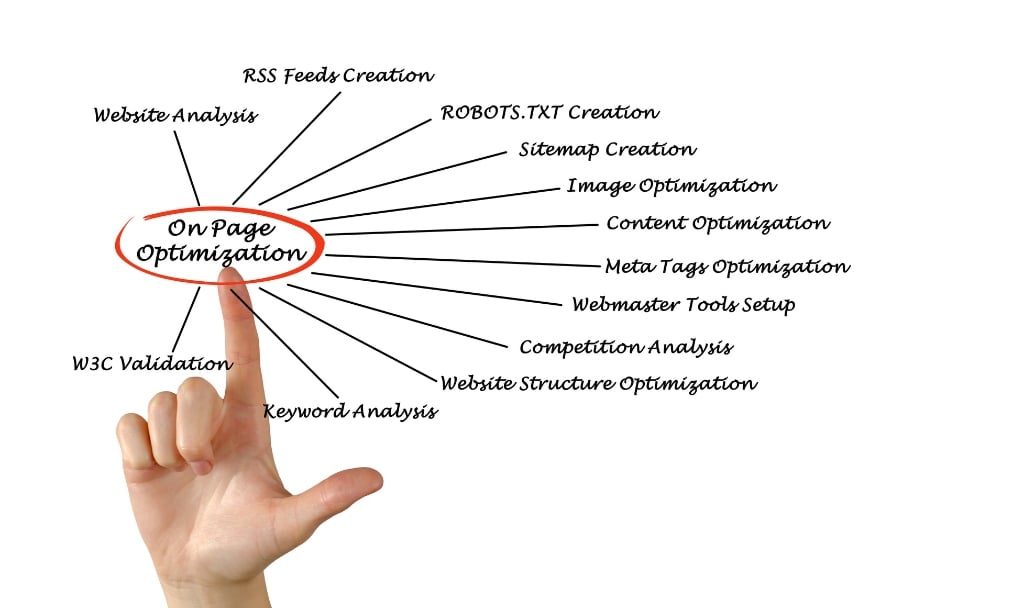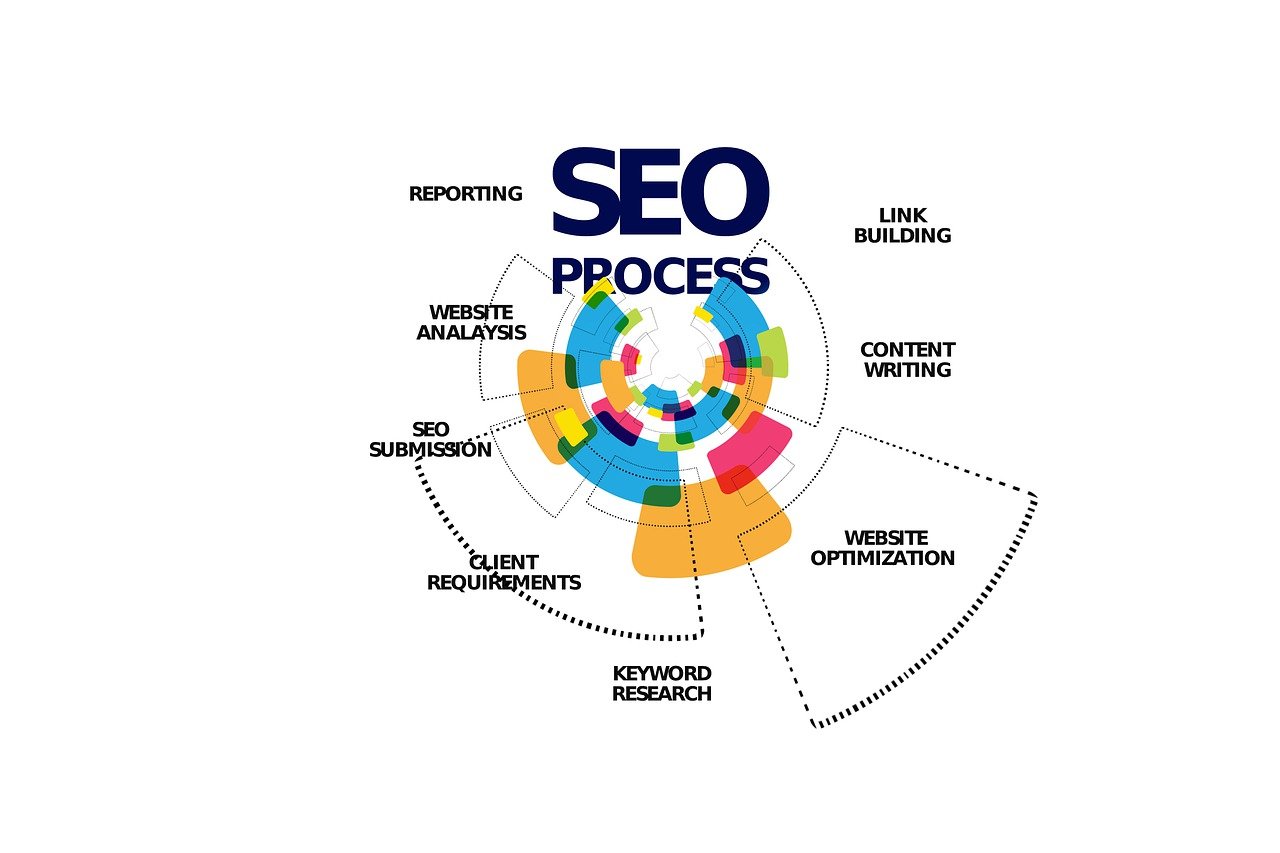On-Page Optimization for Local SEO: Best Practices for Your Website
By Adam S on Wed, May 10, 2023 @ 09:43 AM

Are you an SMB (small to midsize business) struggling to attract quality local customers and looking for an effective solution?
Sounds like you could use a little help with on-page optimization for local SEO.
When you optimize your website's content, metadata, and user experience for local searches, you can improve your visibility in search results and reach more potential customers in your area. Here are some of the best practices we recommend here at BroadVision Marketing for on-page optimization for local SEO so that you can start seeing results today!
Understanding Local SEO
Local SEO refers to the process of optimizing a business's online presence for local searches. This is done through various techniques, including on-page optimization, content creation, and metadata optimization.
On-page optimization plays a crucial role in local SEO as it helps search engines understand the relevance of your website to specific local queries. Incorporating relevant keywords into your website's content and metadata increases its chances of appearing higher in local search results.
Small and medium-sized businesses can benefit greatly from investing in local SEO as it allows them to compete with larger companies that have deeper pockets for advertising. By focusing on building a strong online presence within their own community, smaller businesses can attract more targeted customers and ultimately drive sales.
In addition to improving search engine visibility, having an optimized website also improves user experience, which leads to increased engagement and conversions. Local SEO helps businesses build trust with their target audience by providing accurate information about locations, opening hours, and contact details.
Understanding the importance of local SEO is vital for any small or medium-sized business looking to establish itself in its community. By implementing best practices for on-page optimization, creating high-quality content tailored to your target market, and optimizing metadata accordingly - you give yourself every chance at being found by potential customers online!

Keyword Research for Local SEO
Keyword research is a crucial component of on-page optimization for local SEO. It involves identifying and analyzing the search phrases that potential customers are using to find businesses in your area. By understanding these keywords, you can optimize your website's content and metadata for improved visibility in local searches.
To conduct effective keyword research for local SEO, start by brainstorming a list of relevant terms that describe your business and its services or products. You can also use tools like Google Keyword Planner or Moz Keyword Explorer to generate additional ideas based on search volume and competition.
Once you have identified a list of potential keywords, evaluate their relevance to your business and target audience. Consider factors such as location specificity, language variation, user intent, and seasonality when selecting which phrases to focus on.
Incorporate the chosen keywords into your website's content and metadata in a natural way that provides value to both visitors and search engines. Remember that over-optimization or keyword stuffing can harm rather than help your rankings.
By conducting thorough keyword research for local SEO and integrating those findings into your website's optimization strategy, you increase the chances of reaching new customers through targeted online searches in your area.
On-Page Optimization Techniques
On-page optimization techniques play a crucial role in local SEO. Creating high-quality, locally-optimized content is essential to rank higher in search engine results pages (SERPs). To achieve this, businesses must first research and understand the local audience they are targeting.
- Keywords: One of the best practices for creating locally optimized content is to incorporate relevant keywords that reflect the location and services offered by your business. This will help search engines understand what your website is about and connect you with potential customers searching for those specific terms.
- Optimize: In addition to incorporating local keywords, optimizing images and videos on your website can further improve its ranking in SERPs. This can be achieved by adding descriptive alt tags that include relevant local keywords or geotagging images with location-specific information.
- User-Focused: Another important factor when it comes to content optimization for local SEO is ensuring that all content on your website aligns with the intent of the user's query. By providing valuable information related to their search query, visitors are more likely to stay on your site longer, which sends positive signals to search engines.
Implementing these best practices for on-page optimization techniques can greatly impact a business's visibility in local searches and ultimately drive traffic and sales toward their website.

Metadata Optimization
Metadata optimization is an essential aspect of on-page optimization for local SEO. Title tags, meta descriptions, and header tags play a crucial role in helping search engines understand the content of your pages and rank them accordingly.
- Title Tags: Your title tag should accurately reflect the content of your page while including relevant local keywords. It’s important to keep it concise (ideally under 60 characters) and unique from other pages on your website.
- Metas: Meta descriptions provide a brief summary of what your page is about, giving users an idea of what they can expect when clicking through to it. Include relevant local keywords in the meta description while keeping it under 160 characters.
- Format Your Headers: Header tags (H1, H2, H3) help break up your content into sections that are easier to read for both users and search engines. Use these tags to highlight important information about your business or services while incorporating relevant local keywords.
- Schema: Schema markup provides additional context about your website's content to search engines. Utilize schema markup specific to local businesses, such as "LocalBusiness" or "Address" to provide more information about your location and services offered.
By optimizing metadata with best practices for local searches, you can improve visibility in local search results, which will drive more traffic to your site from potential customers looking for nearby services offered by you!
User Experience Optimization
User experience (UX) optimization is a crucial aspect of on-page optimization for local SEO. A good user experience means that visitors will spend more time on your website, engage with your content, and potentially convert into customers. To improve UX for local visitors, you need to consider the following factors:
Firstly, optimizing website navigation is essential in improving user experience. Local visitors should be able to find what they're looking for quickly and easily. Make sure your navigation menu is clear, concise, and relevant to their search intent.
Secondly, mobile responsiveness is critical to improving UX for local visitors as most people now use their smartphones or tablets when searching online for products or services nearby. Ensure that your website design is responsive across all devices so that users can access it conveniently regardless of the device they are using.
Ensure any images or videos used on the site are optimized for faster loading times without reducing quality since this affects the overall user experience as well.
Optimizing user experience should always be a priority when attempting to rank locally because it increases engagement rates which ultimately leads to better business results!

Call BroadVision Marketing for Help Understanding Local SEO
By implementing the best practices for on-page optimization for SEO, you can improve your website's visibility in local search results and attract more potential customers to your business. Remember, optimizing content and metadata with relevant keywords is crucial for ranking higher in Google's local search results.
Improving user experience by making your website mobile-responsive and easy to navigate also plays a significant role in boosting your rankings. With BroadVision Marketing's help, understanding local SEO and implementing these best practices becomes much easier.
So why wait? Call us today to take the first step toward improving your website's visibility in local search results!
You May Also Like
These Related Stories

Keyword Optimization: Get Your Business Showing On Search Engines

Local 101: Local Keyword Research - Finding the Right Search Terms for Your Business

.png?width=302&height=75&name=BVM%20Logo%20-%20transparent%20(1).png)





No Comments Yet
Let us know what you think